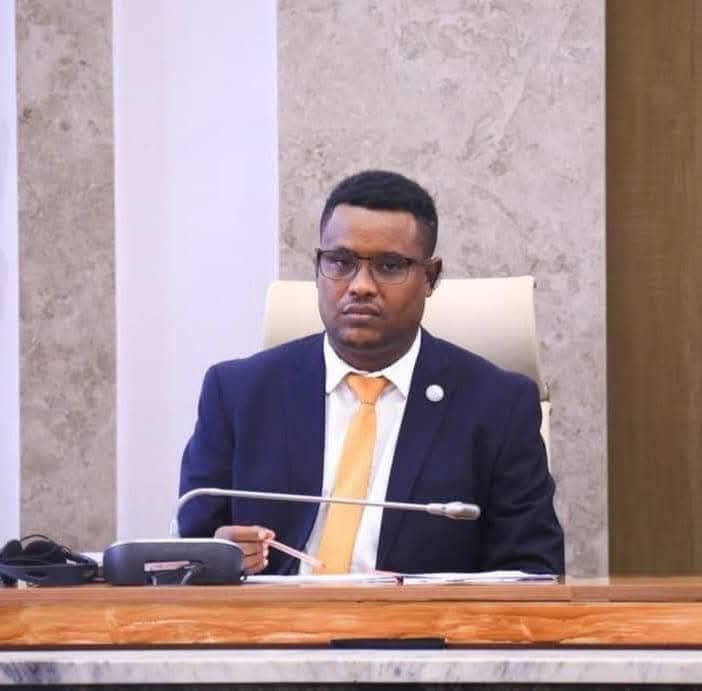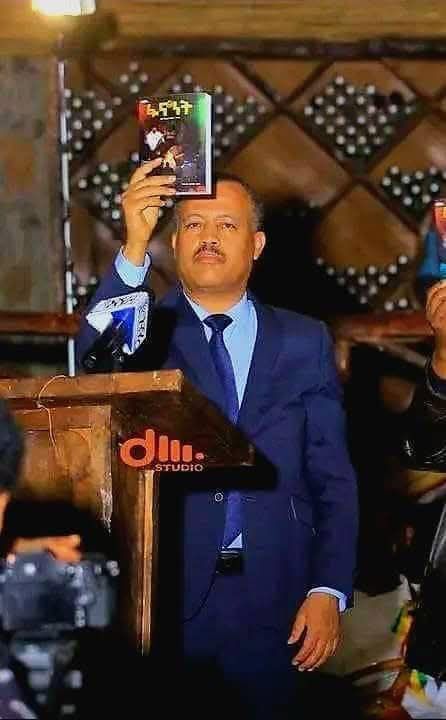 The local law presents certain issues that necessitate clarification concerning the esteemed roles of the judges involved. I kindly seek your authorization to provide this explanation. As a Christian, I have endured this situation for 550 days, confronting violence and adversity. Despite these challenges, I have refrained from any criminal conduct that would justify legal consequences.
The local law presents certain issues that necessitate clarification concerning the esteemed roles of the judges involved. I kindly seek your authorization to provide this explanation. As a Christian, I have endured this situation for 550 days, confronting violence and adversity. Despite these challenges, I have refrained from any criminal conduct that would justify legal consequences.
Moreover, I am committed to addressing the urgent concerns of the Amhara people, particularly the violence and injustices they experience, which I have meticulously documented. The actions of the ruling party and government officials, marked by corruption and negligence, have intensified these problems. The protests and gatherings I have organized have adhered to the legal avenues available to us.
I have actively engaged in committee work to confront the systemic violence and discrimination reported by various human rights organizations. My intention is to hold the government and ruling party accountable for their misconduct, as underscored in reports from both national and international human rights bodies. This message will be conveyed directly through radio and television broadcasts during public consultations with representatives of the community.
Some leaders have attempted to address these questions privately and in a manner that avoids direct inquiry. Some of them may seek to intimidate or provoke me, and there is a general concern that they could inflict some form of harm upon me; they have also sent messages to this effect. This situation arises from the fact that I have not engaged in any criminal activity that would warrant such treatment. Rather, all my actions have been in accordance with my obligations and responsibilities as a member of the public, reflecting my commitment to the law and the community. Everything I have done has been constructive rather than detrimental. Even in the face of adversity, I have not found myself in a position where I could be subjected to violent retribution. Esteemed colleagues, As I previously mentioned, I have endured a severe situation for 550 days; during this time, I have not committed any crimes that would justify the ongoing challenges I face. I am fully aware of who has imprisoned me and the reasons behind my detention. The truth is known to the public as well. Furthermore, I identify as an Amhara, and my identity is rooted in my heritage. My commitment to the Amhara identity is intrinsic, and I embrace it wholeheartedly. In every circumstance, my dedication to my Amhara identity is a natural obligation. This commitment is essential for safeguarding the rights, interests, and needs of our people against systemic and institutional injustices.
Some leaders have attempted to address these questions privately and in a manner that avoids direct inquiry. Some of them may seek to intimidate or provoke me, and there is a general concern that they could inflict some form of harm upon me; they have also sent messages to this effect. This situation arises from the fact that I have not engaged in any criminal activity that would warrant such treatment. Rather, all my actions have been in accordance with my obligations and responsibilities as a member of the public, reflecting my commitment to the law and the community. Everything I have done has been constructive rather than detrimental. Even in the face of adversity, I have not found myself in a position where I could be subjected to violent retribution.
Esteemed colleagues,
As I previously mentioned, I have endured a severe situation for 550 days; during this time, I have not committed any crimes that would justify the ongoing challenges I face. I am fully aware of who has imprisoned me and the reasons behind my detention. The truth is known to the public as well. Furthermore, I identify as an Amhara, and my identity is rooted in my heritage. My commitment to the Amhara identity is intrinsic, and I embrace it wholeheartedly. In every circumstance, my dedication to my Amhara identity is a natural obligation. This commitment is essential for safeguarding the rights, interests, and needs of our people against systemic and institutional injustices.
I am an Amhara by birth, and my identity as an Amhara is intrinsic to who I am. My commitment to Amhara nationalism is unwavering, and I take pride in it. Regardless of the circumstances or location, it is my natural obligation to uphold and defend my Amhara identity. This commitment is particularly relevant in the context of the ongoing challenges faced by the Amhara people, where systemic and institutional barriers threaten our fundamental rights, interests, and benefits. It is essential to advocate for the Amhara community’s legitimate demands and to address the political, social, and economic agendas that affect us. I am dedicated to participating in the political process, ensuring that our voices are heard and represented through lawful means. In the sixth round of national and regional elections, we have successfully secured five parliamentary seats and thirteen regional council seats. Our party stands as a significant opposition force in Ethiopia, reflecting the will of the people.
As a representative of the people, I am proud to be part of a coalition that includes eight other political parties. Through our electoral manifesto and foundational documents, we aim to safeguard the values of our community and promote Amhara nationalism as a guiding principle for governance and global engagement. The people’s choice will ultimately shape our governance.
The political discourse presented in the legal framework indicates that “the Amhara heritage has been established; the nation must be guided by Amhara values.” This statement reflects a significant ideological stance that has emerged as a contentious issue.
The esteemed challenge; distinguished leaders;
“The truth that ‘the Amhara people have been united in their identity and autonomy’ is not solely my assertion but is shared by the entire Amhara community and many Ethiopians. This assertion is firmly grounded in the principles established by our party and is clearly articulated in the electoral manifesto. Currently, the Amhara identity, alongside the historical legacy of the former ADP, is recognized as a legitimate concern for the Amhara people, as evidenced by the formal acknowledgment received during the twelfth regular assembly. The federal government, in addition to addressing the Amhara populace, has also initiated a commission to tackle issues of identity and boundaries affecting various ethnic groups. This commission is actively engaged in discussions, and it is imperative that the key national agendas are prioritized. Therefore, how can we justify the imposition of such challenges upon us in the name of exclusivity?
The concept of identity, particularly in relation to the Amhara people, encompasses a range of social attributes that reflect both individual and collective experiences. Identity serves as a marker of societal engagement, where members of the community participate in daily activities and interactions that embody both positive and negative qualities. It is essential to recognize the significance of appropriateness and ethical standards within this context.
The identity of the Amhara people is characterized by various attributes that signify their cultural essence, including loyalty, hospitality, integrity, and justice, among others. These values are foundational to the Amhara identity and contribute to the moral fabric of the community. They are not merely abstract concepts but are integral to the lived experiences of the people.
Furthermore, the Amhara values are seen as the bedrock of their cultural identity, shaping their worldview and guiding their interactions. While there may be political discourse surrounding these values, it is crucial to understand that they are not solely political tools but rather represent the core of what it means to be part of the Amhara community. The ongoing discussions about identity and values should focus on their role in fostering unity and understanding within the broader Ethiopian context.
The esteemed talent; distinguished judges;
I would like to address the matter concerning the legal framework that has been communicated via telephone, as indicated by the dialogue between two individuals. The legal framework has been associated with my name through a registered phone number, yet I have not disclosed the number I called or the identity of the individual I spoke with. Given that the audio evidence presented is indeed mine, how can it be substantiated? What means were employed to verify this? Ethiopia lacks a comprehensive system for audio verification, and there are no professionals in this field. Where is the accountability? To what extent has my original voice been altered? What is the acceptable cut-off percentage for audio evidence to be deemed legally valid?
These critical issues remain unresolved, and the audio evidence provided does not belong to me; however, I have not encountered any legal violations that would implicate me in wrongdoing.
In conclusion, the legal framework presented lacks a valid permit for the possession of military equipment, and I possess a legal permit. I have retained the permit documentation for eight months, which I can present as evidence of my compliance.
Thank you.
Ato Christian Tadele.

